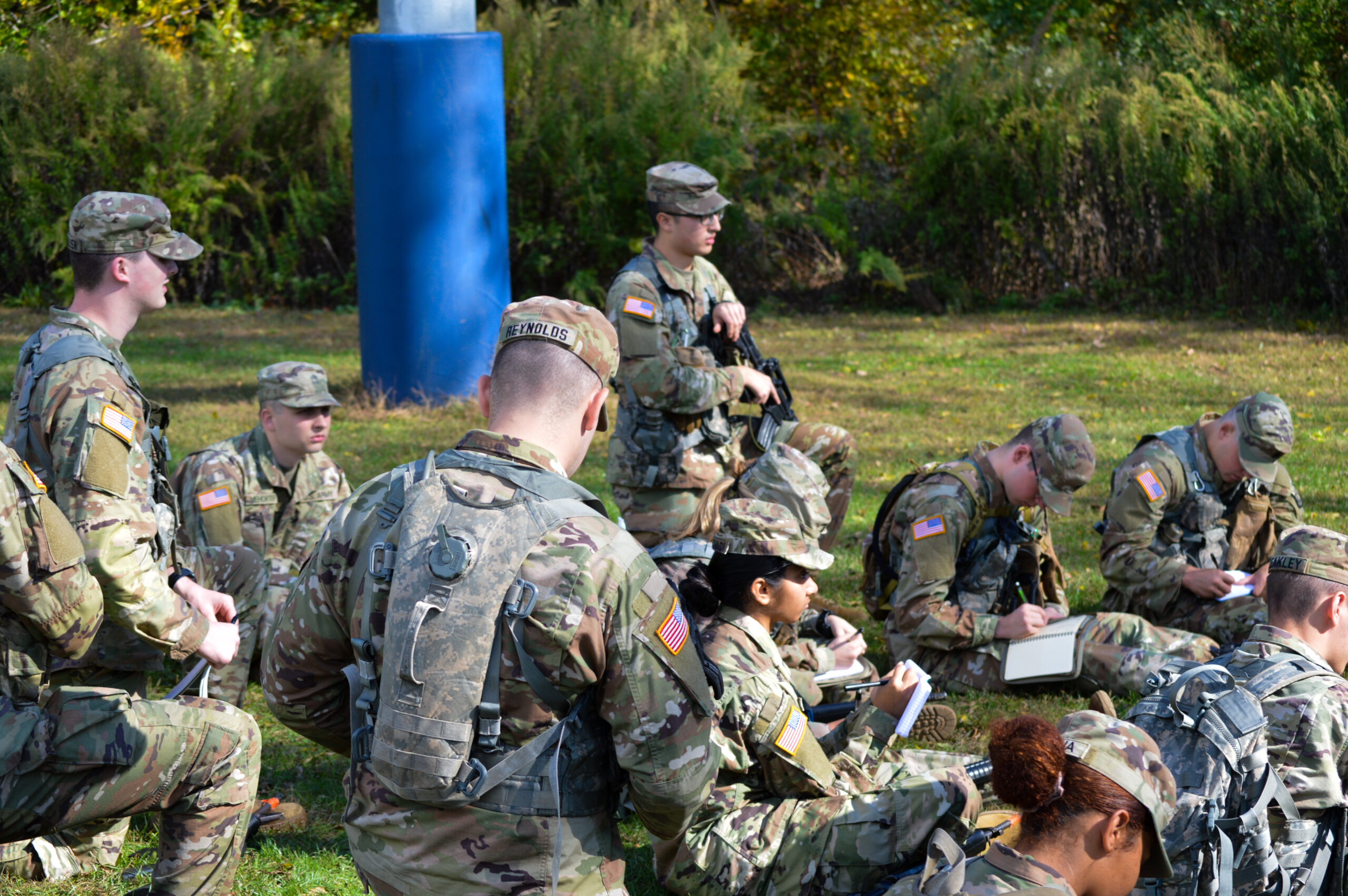For over 125 years, students at the University of Rhode Island have been participating in the Army Reserve Officer Training Corps.
URI ROTC enters its 130th year in 2024, seeking to continue its mission of commissioning officers and providing students with leadership skills to succeed in the Army and beyond, according to professor of military science Lt. Col. Tad Granai.
Cramer’s Sabers is a collective battalion composed of 46 students from URI, seven from Salve Regina University and nine from Roger Williams University, and is headquartered in Kingston. It is named after 1st. Lt. Parker D. Cramer, an alumnus of the University’s ROTC program who was killed in action during the Vietnam War.
URI ROTC has the goal of commissioning 15 Second Lieutenants each year to active duty, national guard or reserve service, according to Granai. ROTC allows students to get a college education, which is a requirement to become an officer in the Army.
Cadets go through a variety of training exercises and education to be able to be commissioned. This includes field exercises such as radio training, march practice, terrain navigation and more. Cadets also learn in the classroom as a part of the military science and leadership program through the URI College of Arts and Sciences. Along with field exercises and classroom instruction, cadets must participate in physical fitness training every Monday, Wednesday and Friday, often starting at 6 a.m.
“They work really hard,” Granai said. “One thing that we’re really proud of: their GPAs. Our average is a 3.6 GPA.”
Though technology and warfare has changed over the years, ROTC training has been altered very little, according to Granai.
“There’s a reason for it,” Granai said. “We’re training leaders. Our cadets are trained to be leaders and that leadership never really changes.”
URI ROTC is built on the motto “Knowledge, Dedication and Integrity,” which is echoed by the cadets, instructors and everyone surrounding the program.
“To have this community that pushes you and drives you to be a better person, be a better leader, is really helpful,” fifth-year Mandarin Chinese and sustainable agriculture and food systems major Darby Donegan said. “ROTC helps instill a lot of self-confidence and helps me be more self assured as a person.”
Donegan plans to commission into the Army reserves and work for the Federal Government.
Granai explained that more specialized training will come for cadets once they complete their ROTC training and are commissioned as officers.
URI ROTC is a diverse organization, according to Granai. Multiple majors, sports and Greek Life organizations are represented.
“We really push for ‘hey, we’ll take anybody,’” Granai said. “We’re kind of all over the map with it, which I think is good because it allows for a diversity of thought.”
Cadets at URI ROTC value the relationships made as a part of the program.
“I love ROTC,” third-year finance major Tiago Huynh said. “It’s just an amazing group of people, through and through. Everyone’s extremely supportive.”
Huynh plans to serve active duty in the signal corps after commissioning before entering the finance world after service.
ROTC provides a community for students to experience new challenges and perspectives.
“My biggest takeaway has been to make sure you help out your peers,” fourth-year sustainable agriculture and food systems major Leilah Enoch said. “We have a strong bond, just like friends and coworkers. It’s just like a really good time, I think we embrace the suck.”
Enoch recently received the Distinguished Military Graduate Honor, a distinction granted to only the top 20% of ROTC Cadets nationwide. Upon her commission into the Army, Enoch plans to serve active duty in the Explosive Ordnance Disposal Branch.
URI ROTC is an organization that seeks to build leadership, regardless of military experience, according to Granai. Any student is encouraged to take entry-level classes under the MSL class code. More information about URI ROTC can be found on their website or on the @cramers.sabers Instagram.





